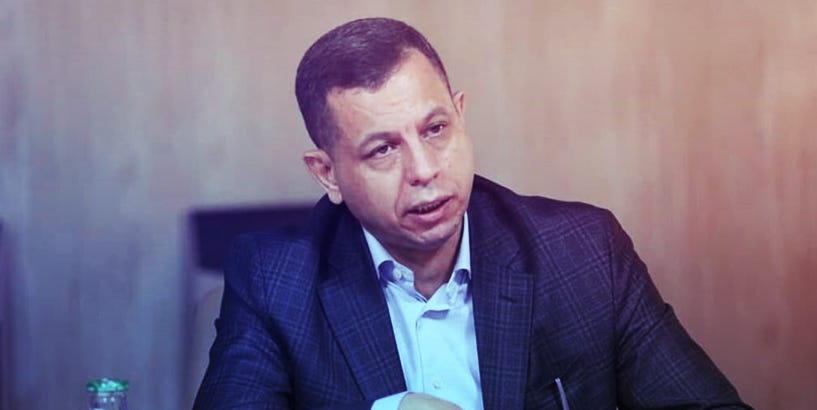Iraq: Hamid al-Sharti appointed new head of spy agency INIS
On December 19, 2024, Iraqi Prime Minister Mohammed al-Sudani has appointed Hamid al-Shatri as the head of the National Intelligence Service (INIS), marking a significant shift in Iraq’s intelligence leadership. This appointment comes amidst a backdrop of political maneuvering and ongoing scandals that have tested the credibility of the nation’s intelligence apparatus. Shatri, a seasoned figure in Iraq’s security landscape, previously served as the head of the Iraqi National Security Service (INSS), a position to which he was appointed by former Prime Minister Mustafa al-Kadhimi. His tenure at the INSS was marked by efforts to modernize the agency’s operations, but it also drew criticism from political rivals.
In July 2023, Prime Minister Sudani removed Shatri from his post at the INSS, appointing Abu Ali al-Basri as his successor. The move was seen by many as part of Sudani’s broader strategy to consolidate power within Iraq’s complex security and intelligence apparatus, which has often been influenced by political affiliations and external pressures. While Shatri’s removal raised eyebrows at the time, his recent appointment to lead the INIS signals Sudani’s recognition of Shatri’s expertise and a possible attempt to restore stability and professionalism to the intelligence service.
The INIS, one of Iraq’s key intelligence agencies, has faced significant challenges in recent years, including allegations of corruption, inefficiency, and political interference. More recently, the agency was embroiled in a wiretapping scandal that was uncovered in August 2023. This scandal implicated officials within the prime minister’s office and the INIS itself, raising serious concerns about the misuse of state resources and the potential for intelligence operations to be weaponized against political opponents. The fallout from this scandal has added to the pressure on Sudani’s government to address systemic issues within the intelligence community and restore public trust.
Since the scandal broke, the INIS had been operating under the leadership of Ahmed al-Sudani, a little-known relative of the prime minister, who served as acting head. His appointment was controversial, with critics arguing that it reflected nepotism rather than a commitment to appointing qualified professionals. Ahmed al-Sudani’s tenure as acting head of the INIS was marred by allegations of incompetence and further deepened concerns about the politicization of Iraq’s intelligence agencies.
Shatri’s appointment as the permanent head of the INIS is widely seen as a move to address these criticisms and signal a new chapter for the agency. With his background in intelligence and security, Shatri brings a wealth of experience to the role. During his time at the INSS, he was known for his efforts to improve coordination among Iraq’s various security agencies and enhance their capacity to combat terrorism and organized crime. His leadership style, characterized by a focus on pragmatism and results, earned him both praise and criticism, depending on political perspectives.
However, Shatri faces a daunting task in his new role. The wiretapping scandal has not only tarnished the reputation of the INIS but also highlighted broader issues within Iraq’s intelligence infrastructure. These include a lack of accountability, overlapping jurisdictions among security agencies, and vulnerabilities to political manipulation. Addressing these challenges will require significant reforms, including improving oversight mechanisms, professionalizing the workforce, and ensuring that intelligence operations are conducted in accordance with the rule of law.
Moreover, Shatri will need to navigate the complex political landscape that shapes Iraq’s intelligence agencies. These agencies have often been used as tools of political influence, with appointments and operations frequently driven by partisan considerations. Restoring the independence and impartiality of the INIS will be critical to its effectiveness and credibility. This will require building trust with both domestic and international stakeholders, as well as demonstrating a commitment to transparency and accountability.
The timing of Shatri’s appointment is also significant. Iraq continues to face a range of security challenges, including the threat of terrorism from remnants of the Islamic State (ISIS), political instability, and regional tensions. The INIS plays a crucial role in addressing these threats by providing timely and accurate intelligence to inform decision-making and support security operations. Shatri’s ability to strengthen the agency’s capacity to fulfill this role will be a key test of his leadership.
Furthermore, the appointment of Shatri underscores Prime Minister Sudani’s broader approach to governance. Since taking office, Sudani has sought to balance competing political interests while addressing pressing issues such as corruption, economic reform, and security. His decision to entrust Shatri with the leadership of the INIS suggests a willingness to prioritize competence and experience over political loyalty, at least in this instance. However, whether this marks a broader shift in Sudani’s approach or a calculated move to defuse criticism remains to be seen.
For Iraq’s intelligence community, Shatri’s appointment represents both a challenge and an opportunity. On the one hand, the agency must confront the legacy of scandals and inefficiencies undermining its credibility. On the other hand, the leadership of an experienced figure like Shatri offers a chance to implement meaningful reforms and rebuild trust with the Iraqi public and international partners. Success will depend not only on Shatri’s abilities but also on the government's political will and the support of key stakeholders.
In conclusion, Shatri’s appointment as head of the INIS marks a pivotal moment for Iraq’s intelligence sector. His leadership will be critical in addressing the spy agency's challenges, including restoring its credibility, strengthening its operations, and ensuring its independence from political interference. At the same time, the move reflects broader dynamics within Iraq’s political and security landscape, highlighting the delicate balance that Prime Minister Sudani must navigate as he seeks to govern a country facing complex and interconnected challenges. Whether Shatri can rise to the occasion and deliver the reforms needed to transform the INIS remains to be seen, but his appointment has undoubtedly set the stage for a new chapter in Iraq’s intelligence history.
SOURCE: Osint




